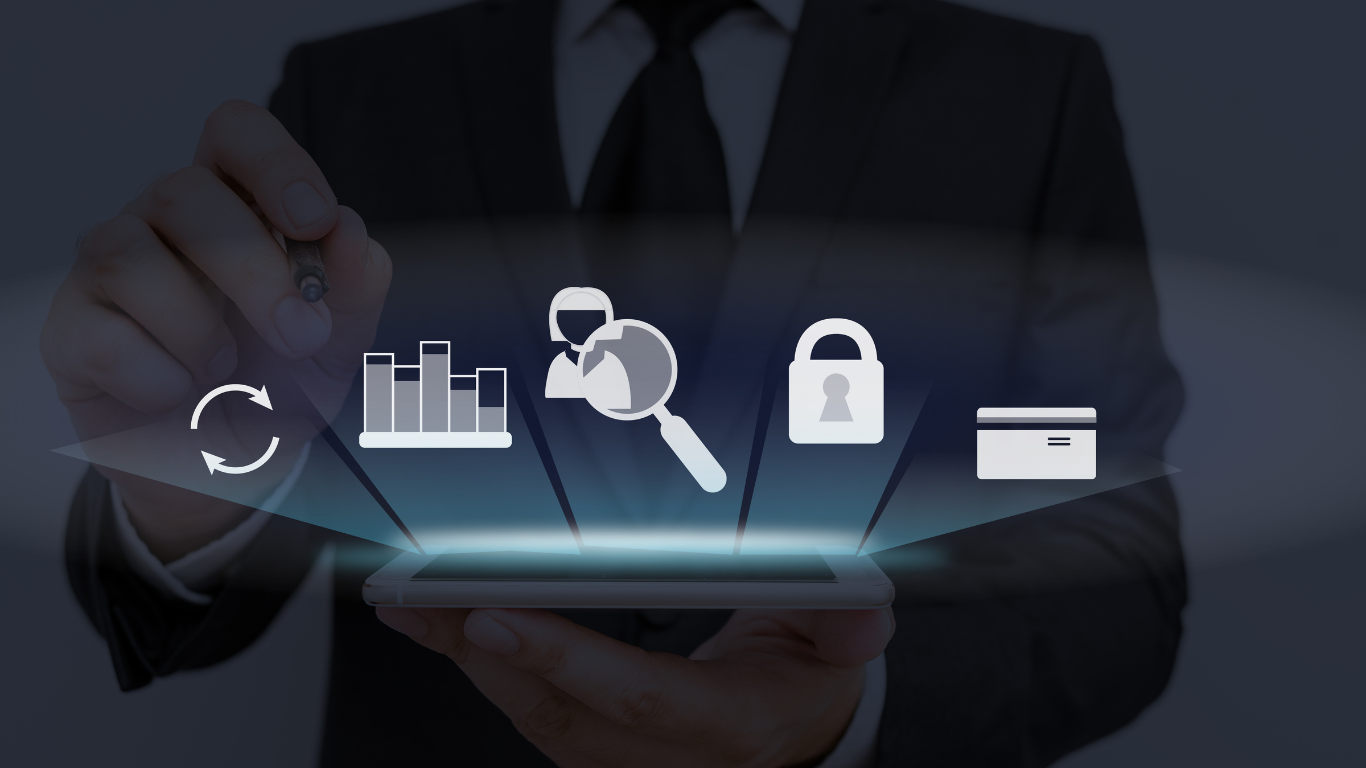In the information age, data has become a strategic asset for public and private entities. Companies, governments and institutions collect and analyze large amounts of data, obtaining valuable information by using it for commercial or research purposes. But as data collection becomes commonplace, a new concern arises: privacy.
Serious consequences such as identity theft, invasion of privacy and misuse of personal information, encouraged the creation of the General Data Protection Regulation (RGPD) with the aim of regulating and guaranteeing the legal and ethical use of data personal data by companies and organizations. Consequently, data anonymization emerged as a key tool to comply with the various requirements proposed by the regulations regarding the management of personal data.
¿What is anonymization?
Data anonymization is a process that removes or modifies personally identifiable information from data sets and information. In this way, the identification of the individuals behind said information remains anonymous.
Anonymization replaces real data, which identifies the individual, with non-identifiable data in order to be able to use and disclose the information, without the need for the individual’s consent, since it is not considered personal information once anonymized. In other words, it is about depersonalizing the information.
The key feature in data anonymization is irreversibility, since it does not allow the original data to be recovered. This guarantees the anonymity of the holders and protects the data so that it is irrelevant in the face of cyberattacks that involve information leaks. With this technique, companies protect the confidentiality and privacy of information in order to make more secure use of the data.
Anonymization vs pseudonymization
As previously specified, data anonymization is an irreversible process that does not allow going back to the origin of the data or identifying the owners. However, there is another process called pseudonymization, which, unlike anonymization, does allow you to return to the original personal data.
Unlike anonymization, in pseudonymization the masking process can be reversed to recover the original data. This allows the data to remain unrecognizable, except for those users who have authorized access.
Once both techniques have been distinguished, we must emphasize that the choice between the two procedures will depend on each use case and the objective pursued through data masking.
Why do companies need to anonymize data?
Companies handle a large amount of sensitive information with which they carry out analysis, research or development activities that may threaten the integrity and privacy of personal data. Data anonymization allows companies to use said information for their benefit without jeopardizing the identity of the individuals involved and complying with current rules and regulations.
These are the reasons why data anonymization is essential for companies:
Protection and privacy of personal data: Anonymization guarantees that identifiable data such as names, surnames or addresses are deleted or modified and are not associated with a particular person. This allows companies to make ethical use of information without jeopardizing the privacy and confidentiality of personal data.
Compliance with data protection regulations and laws: Compliance with the data protection regulation (RGPD) is one of the benefits that data anonymization brings to companies. Anonymization makes it possible to comply with different requirements established by the regulations, alleviating, among other things, the procedures to be followed in the event of cyberattacks suffered.
Promotion of research and analysis: Data anonymization allows institutions and organizations to analyze large amounts of data without jeopardizing the confidentiality and privacy of the information. In this way, data can be shared and analyzed without risk of being exposed or compromising the privacy of the identifiable person.
Why do companies need to anonymize data?
Companies handle a large amount of sensitive information with which they carry out analysis, research or development activities that may threaten the integrity and privacy of personal data. Data anonymization allows companies to use said information for their benefit without jeopardizing the identity of the individuals involved and complying with current rules and regulations.
These are the reasons why data anonymization is essential for companies:
- Protection and privacy of personal data: Anonymization guarantees that identifiable data such as names, surnames or addresses are deleted or modified and are not associated with a particular person. This allows companies to make ethical use of information without jeopardizing the privacy and confidentiality of personal data.
Types and examples of data anonymization
There are different replacement methods depending on the use case and the objective pursued in the anonymization of personal and sensitive data.
Data masking
Masking is a technique in which personal data is replaced by asterisks or blacklining (crossed out). The information will be anonymized without being able to return to the original data to protect the privacy of the information and data of the individuals involved.
Tokenization
This method replaces the data with consistent tokens made up of a prefix indicating the infotype (PER, LOC, WEB, DAT) and the numerator (to differentiate them). In this way, where the name of the individual appears, the word PER will appear, preventing it from being identified. This technique avoids putting the privacy of the individual at risk and maintains the value and legibility of the information, which facilitates the exchange of information between collaborators as well as the traceability of the information.
Substitution by synthetic data
This method replaces the actual data with others of the same nature. In other words, if you want to anonymize a male name with surnames, this name is replaced by another male name with other surnames. Real data is replaced by fictitious data. This method makes it easy to understand and maintains the readability of the information without exposing the data and protecting your privacy.
What are the benefits of data anonymization?
Secure data sharing
The implementation of this technique improves the efficiency of processes between companies when sharing information. Whether it is for performance testing, software testing or to analyze and use as a research method; Anonymization facilitates the exchange of information, avoiding its exposure, protecting the integrity and privacy of the data. Also, with anonymizing software like Nymiz, the data protection process is automated for faster and more efficient testing.
Data protection and GDPR compliance
Another benefit of data anonymization is that it can help companies avoid potential fines and penalties for breaching privacy laws. The lack of protection of personal data means that the data can be exposed to possible information breaches that can lead to information leaks. Exposure of personal data can cause fines and sanctions that, in addition to producing economic effects, can affect business reputation. Anonymization mitigates the risk of data exposure and therefore the consequences in the form of fines and reputational damage.
Image and corporate responsibility
Data anonymization can be very beneficial for the reputation of companies. By protecting the personal data of their customers, companies demonstrate their commitment to the privacy and security of information. In case of information exposure, the data will remain protected, without the need to notify customers and suppliers that the data has been exposed because it was simply anonymized. This means strengthening trust with the client, creating a solid and lasting relationship.
Use cases where data anonymization is necessary

Health sector: Sharing of patient information for research
The health sector is undoubtedly one of the main sectors that generates and manages especially sensitive data in its daily activity. Health institutions must guarantee the security of said data, avoiding its exposure to possible data leaks or human errors. In addition to the above, data anonymization prevents the exposure of patient identification data in case the information is used for training purposes or case studies.
Social security numbers, names, x-rays and medical records are sensitive assets that are shared with third parties and whose access is enabled to other organizations for the development of clinical studies. Before sharing, personally identifiable data must be protected by anonymization for proper compliance with the GDPR.
In this context, data anonymization protects the privacy and confidentiality of personal data so that the patient’s anonymity remains but the usefulness of the information for analysis and development of studies and research is maintained.
HR: sharing of information and compliance with retention periods set by GDPR
Among the requirements established by the personal data protection regulations (RGPD), it is stipulated that it is necessary to protect the privacy of personal information for its management and sharing with third parties. Data anonymization ensures that personal data is protected by avoiding the identification of the individual to whom it refers, thus complying with the GDPR. In turn, this method guarantees that strictly necessary personal data is managed for the duration of the purpose for which they are required.
Legal: knowledge management
Knowledge management has become a priority for law firms. The knowledge that organizations accumulate is a valuable intangible asset that can become a differential factor.
To extract value from this knowledge, the implementation of knowledge management projects has been accelerated; projects in which a large volume of documents containing personal data is processed.
The anonymization of data in signatures and legal documents guarantees the privacy of sensitive information without losing the legibility, context and understanding of the documents. Without guaranteeing the protection of personal data, using the documents for this purpose constitutes a breach of data protection regulations.
Software development
In software development, data anonymization serves to ensure that the personal data collected and used complies with data protection laws, such as the GDPR. This data is used for software testing, performance improvements, and application analysis. It is essential to guarantee the privacy of personally identifiable data and avoid its exposure in possible security breaches, as well as to maintain the usefulness of the information.
The automation of data anonymization
Data anonymization has become an essential requirement for companies in order to guarantee data protection. But how can the anonymization of information (databases and documents) be addressed efficiently? In automation we find the answer.
Data masking is certainly an unattainable task through manual compliance measures. The volume of data accumulated both in databases and in documents, images or videos requires tools capable of detecting and subsequently redacting personal data.
Thanks to natural language processing (PLN) it is possible to simplify the task of detecting personal data, offering companies savings in time and costs. Incorporating an efficient anonymizer into the various data analysis, sharing and usage flows is enough to turn a seemingly intractable task into a simple automated process.
Nymiz improves business processes by protecting personal data
Nymiz simplifies the challenge of data anonymization by offering a 360 solution capable of protecting data both in databases and in documents.
With its artificial intelligence-based software, Nymiz is able to identify personal data from all information and is able to anonymize data easily and quickly with its automation process. In addition, it allows customizing the anonymization process, since each use case requires protecting and maintaining data of different natures that have different purposes.
In the health sector, Nymiz guarantees the protection of sensitive data while keeping the usefulness of the information intact, which guarantees a safe and useful data sharing for tests, analysis and development of studies.
The use of Nymiz in areas such as intervention, HR, occupational risk prevention and secretarial services guarantees the security of information in a simple way. With our help it is possible to share and store information and knowledge without putting personal data at risk.






